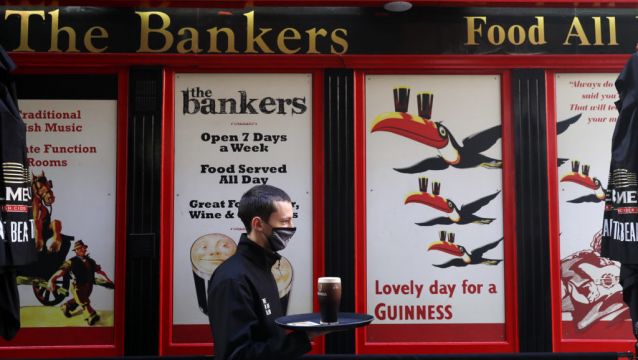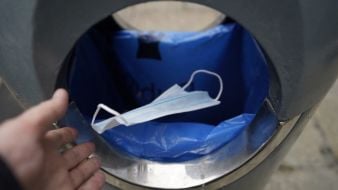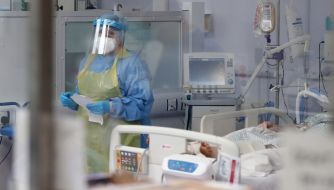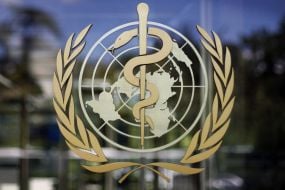Updated: 8.30am. Additional reporting by Vivienne Clarke.
The requirement to wear face masks and practise social distancing should return in confined spaces in Ireland, an expert from the World Health Organisation (WHO) has said.
Since face masks became discretionary earlier this year, Covid cases have surged, with 23,125 new infections confirmed by the Department of Health on Thursday.
Yesterday morning, there were 1,425 people in hospital with the virus - the highest number since February last year - of whom 53 were in intensive care.
Hospitals around the country have opted to reintroduce restrictions on patient visits due to the increased prevalence of the virus over the last number of weeks, while many have also urged members of the public to avoid attending Emergency Departments (EDs) unless it is completely necessary as services come under substantial strain.
On Thursday, Cork University Hospital once again urged people to seek other care pathways as the hospital's ED deals with the ongoing strain of the latest surge in Covid cases, reiterating that visiting restrictions remain in place.
Hospitals in the southeast and midwest, including University Hospital Limerick and University Hospital Waterford recently made similar calls to limit patient visits and ED attendances.
The WHO's special envoy on Covid, Dr David Nabarro, has said with Covid cases on the rise once again, members of the public should return to wearing face masks and practise basic public health measures, such as keeping their distance from one another and washing their hands.
"If I were in Ireland right now, I would be expecting there to be a request for mask-wearing in confined spaces where there may be crowds, such as public transport, for example, and hospitality venues that are hot and unventilated.
"I would be expecting those to be the kind of places where mask-wearing and physical distancing become strongly recommended."
Isolation
Meanwhile, Professor of experimental immunology Kingston Mills has expressed concern about any moves to reduce the length of time people are required to isolate if they test positive for the virus.
Suggestions that the length of time be reduced to help address the high levels of healthcare staff who are not at work because of Covid could lead to more people being infected, he warned RTÉ Radio’s Morning Ireland.
People could be infectious for up to 10 days, but they might experience symptoms for only three days after which they were tempted to return to work where they could still transmit the virus, he said.
It was very difficult to stop transmission of the new BA2 sub variant if people were not wearing masks, he said, adding that public health measures would not make a difference because the variant is so transmissible.
Staying two metres apart was not going to help if someone with the virus sneezes in a room and they were not wearing a mask, he explained.
Prof Mills pointed out that the symptoms of BA2 are more upper-respiratory and not as severe as earlier variants, but it remained unknown what the long term consequences could be.
While young people did not appear to be getting very sick, some people were ending up in hospital and in ICU. “It is not trivial,” he said.
Speaking in Brussels on Thursday, Taoiseach Micheál Martin insisted the latest wave of Covid infections does not justify further restrictions, adding that chief medical officer (CMO) Dr Tony Holohan has not recommended such a move.
“This current wave seems to be less impactful, less virulent, the CMO is of that view, than earlier variants, and it doesn’t justify further economic restrictions.”
Despite this, Mr Martin did appeal to people to wear masks in crowded places, even though the legal requirement to do so has lifted.







